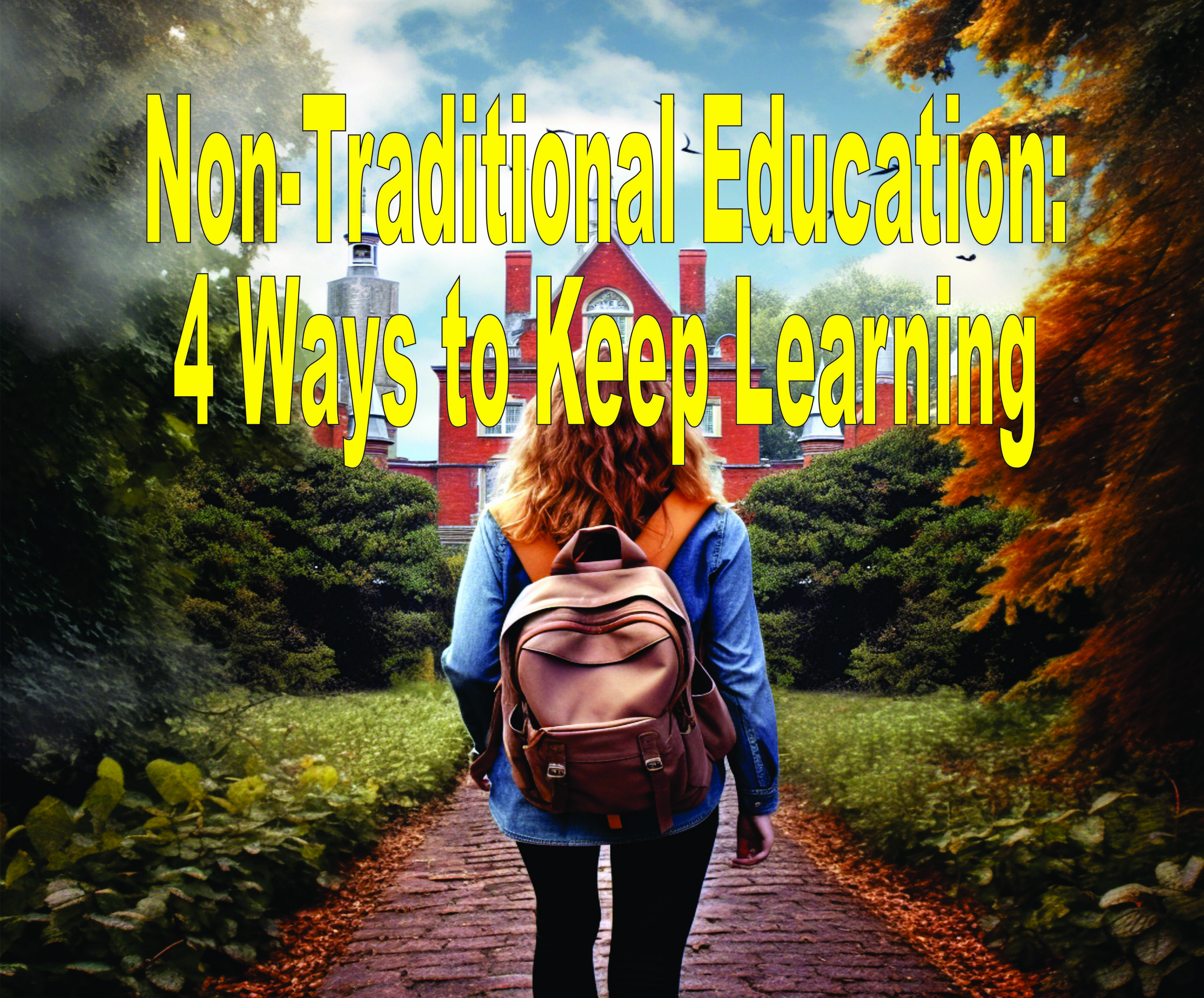Non-Traditional Education: 4 Ways to Keep Learning

Last Updated on May 2, 2024 by Kathy
A recent study published in Scientific American found that taking a three-month course dramatically improved the memory and attention of older adults. In fact, at the program’s end, their abilities resembled adults 30 years younger. Surprisingly, the gains improved over the following year. Researchers concluded the question is not whether adults should pursue learning but how to maximize opportunities.
Learning is a lifelong activity that can take place in any setting. According to an AARP survey, 55% of adults aged 45 or older actively learn new things. This blog post will explore lifelong learning opportunities for adults who want to keep learning and growing.
Benefits of Non-Traditional Education
There are many benefits to gaining new knowledge and skills throughout one’s life:
- It helps professionals keep up with changes in their field and promotes innovation
- Learning new things improves your mental health.
- Mastering new skills boosts self-confidence and self-esteem.
- It reduces the risk of cognitive decline as we age.
4 Ways to Keep Learning
Traditional education involves lectures, classrooms, and tests. Non-traditional education or lifelong learning can be any regular engaging activity that challenges you. Examples include:
- Learning a new skill like painting, cooking or gardening
- A sport or activity like dance, yoga, or tai chi
- Mastering new technology like Zoom or an iPad
- Self-taught learning, such as a new language
- Taking a course, either online or in-person
There are benefits to each type of learning activity. Online tutorials give instant guidance, while clubs and hobby groups provide hands-on experience and a social outlet. The following are four ways to keep learning:

Take a College Course
Many colleges and universities offer free or reduced tuition for older adults who want to continue their education. You can check with your local community college or state education agency for more information on the eligibility and availability of these programs.
Explore E-Learning
If you’re seeking educational opportunities, there are online courses or video tutorials on nearly every topic. A short video is enough for some lessons, like how to bake the perfect cheesecake. For more in-depth topics, enroll in a course. You’ll be able to learn at your own pace and convenience.
Visit Senior Planet for programs created for older adults. This programming, developed by the New York Public Library and AARP, focuses on financial security, social engagement, creative expression, health and wellness, and civic participation.
Look into virtual courses on various topics on the e-learning platforms below:
- Museum of Modern Art
- Coursera
- Udemy
- Skillshare
- Grow with Google
- MIT OpenCourseWare

Join A Club
Make new friends and explore your interests by joining a local club or organization. In these groups, you’ll benefit from resources, social support, and feedback to help you learn and improve your skills.
Many businesses offer courses to the public. Rediscover an old hobby or learn a new one with courses like these:
- REI Co-Op classes and events
- L.L. Bean outdoor discovery programs
- Home Depot live stream workshops
- Hobby Lobby DIY project videos
- Michael’s art classes and events
- Microsoft training modules
- Today at Apple creative sessions
You can also explore the world and learn about cultures and histories by joining a senior travel program or exchange.
Learn Where You Live
If you live in an exceptional senior community, the learning opportunities come to you. For example, the Vineyard Senior Living communities offer a variety of lifelong learning activities, such as art classes, book clubs, wine tastings, and yoga sessions.
As you can see, many ways to pursue lifelong learning as an adult exist. Whether you enroll in formal education, join informal learning communities, or take advantage of unique education opportunities, you can enjoy the benefits of lifelong learning for your personal and professional development. Lifelong learning can help you stay curious, engaged, and fulfilled. So what are you waiting for? Start your lifelong learning journey today!






